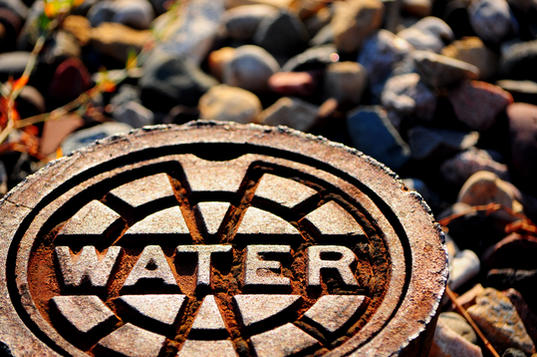When winter storms swept across the US a few weeks ago, all eyes were on the power outages. There was little to no coverage on the water crisis in Jackson, Mississippi, where some residents have now been without water for over three weeks. The city has asked residents to conserve their water and there is currently a system-wide boil water notice.
Jackson, one of the cities with the highest percentage of Black people in the US, was hit hard by rare winter storms in mid-February. Just like in Texas, Jackson also experienced widespread power outages because of the storms. Unlike in Texas, power was restored, but an equally important issue was on the rise: no running water. While the water system is now beginning to come back online, according to the Washington Post, “Officials say it’s impossible to know how many homes are completely without water, as some may have a trickle coming out of their pipes.”
Unfortunately, interruption of water services is not new to Jackson residents, but for many, this is the longest they’ve gone without water. And residents have no idea when to expect regular water supply. Due to outdated infrastructure, the city is unprepared for future storms. “Infrastructure has been a historic problem, and for years each administration kept kicking that can down the road. This is a longtime issue, but now we're paying a severe price for that neglect," said state Rep. Ronnie Crudup.
When it comes to Black, Indigenous, and People of Color (BIPOC), systemic racism through laws, policies, and practices have placed these communities in an especially vulnerable position regarding environmental hazards. These communities like Jackson, along with low-income communities, bear the burden of facing a disproportionate amount of impacts due to the climate crisis; impacts that are not limited to air quality and warming but also include access to economic resource, job security and ability to evacuate during natural disasters.
“As the effects of climate change intensify, so too will the stark differences in consequences experienced by the privileged and the disadvantaged. So as we see more intense storms and extreme temperatures, it’s important to examine the systemic and structural deficiencies that exacerbate inequity.” says Propublica’s Talia Buford.
“As the effects of climate change intensify, so too will the stark differences in consequences experienced by the privileged and the disadvantaged. So as we see more intense storms and extreme temperatures, it’s important to examine the systemic and structural deficiencies that exacerbate inequity.” says Propublica’s Talia Buford.
Equitable access to energy and water as well as systems and infrastructure that support BIPOC communities are critical to ensure a just future. As stated in the World Economic Forum, “Universal access to reliable, affordable and abundant energy is still not a given everywhere in the world.”
Climate disasters and extreme weather already taxes infrastructure in communities with the best resources. BIPOC and low-income communities will be unable to withstand these increasing conditions as they have infrastructure that is typically aged, neglected and under-funded. As the US transitions to clean energy and green infrastructure it is more important than ever that no one is left behind, and underserved and disenfranchised communities are centered in climate conversations and solutions.
With the escalation of climate disasters, Jackson’s residents will continue to suffer water shortages. Extreme weather and storms will become more frequent as the climate crisis increases. As we’ve seen in both Texas and now in Jackson, infrastructure systems will be more heavily burdened. For systems that are unprepared, it will come at the cost of citizens in time, health, money, and availability of resources. Cities must invest in sustainable infrastructure and green energy to withstand climate impacts and ensure a just transition.
